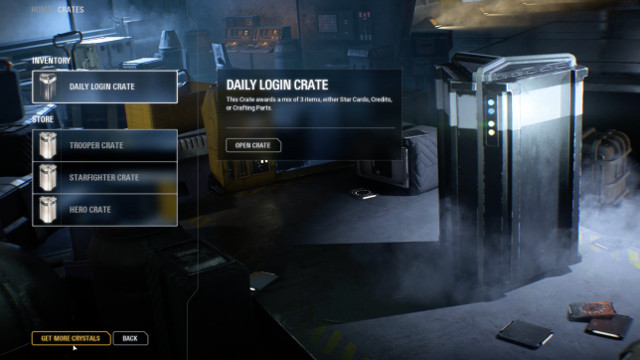At a Senate Commerce subcommittee hearing that took place Tuesday, New Hampshire Senator Maggie Hassan put a question to Federal Trade Commission chairman Joseph Simons. Would he commit the FTC to investigating video game loot boxes?
Simons’response was simple: “Yes.”
Video game loot boxes are virtual items that cost real-world money and provide random virtual rewards, an in-game weapon or cosmetic, as two examples, and Hassan’s inquiry was preceded by some startling statistics about the frequency with which children are purchasing them. One such citation was pulled from a report by Great Britain’s Gambling Commission, which indicated that 30% of children had paid for loot boxes at some point in their lives.
This statistic appears central to Hassan’s concern, as she continued by suggesting that an investigation into loot boxes would serve to “ensure that children are being adequately protected” from them. For many, loot boxes appear to be little more than slot machines, where players insert their money and hope that a desired or high-value item is spit back out, and the lack of oversight means that children can become easy targets.

Of course, companies that include loot boxes in their games refuse the idea that they are simply a veiled form of gambling. EA, for example, distinguished their loot boxes by stating that “players always receive a specified number of items” from them. This stance puts loot boxes in closer company with opening a pack of collectible cards, as there is no potential of losing everything in the way that one can in a traditional casino game.
While video game loot boxes date back to 2004’s MapleStory, the controversy surrounding them has reached a fever pitch in recent years. Games like last year’s Star Wars Battlefront 2 have caused public outcry due to what players have perceived as predatory microtransaction systems, and European countries like Belgium and the Netherlands have responded by banning some game’s loot boxes outright.
How this new commitment from the FTC will impact loot boxes in the United States remains to be seen. While an additional stated goal of Hassan’s requested investigation is to educate parents on loot boxes, some may feel that, without oversight, they are powerless in the face of the companies that provide them to their children. This investigation may mark the beginning of some form of regulation and an end to loot boxes being made freely available to minors.
The relevant portion of Tuesday’s hearing is available on YouTube.







Published: Nov 28, 2018 06:00 pm